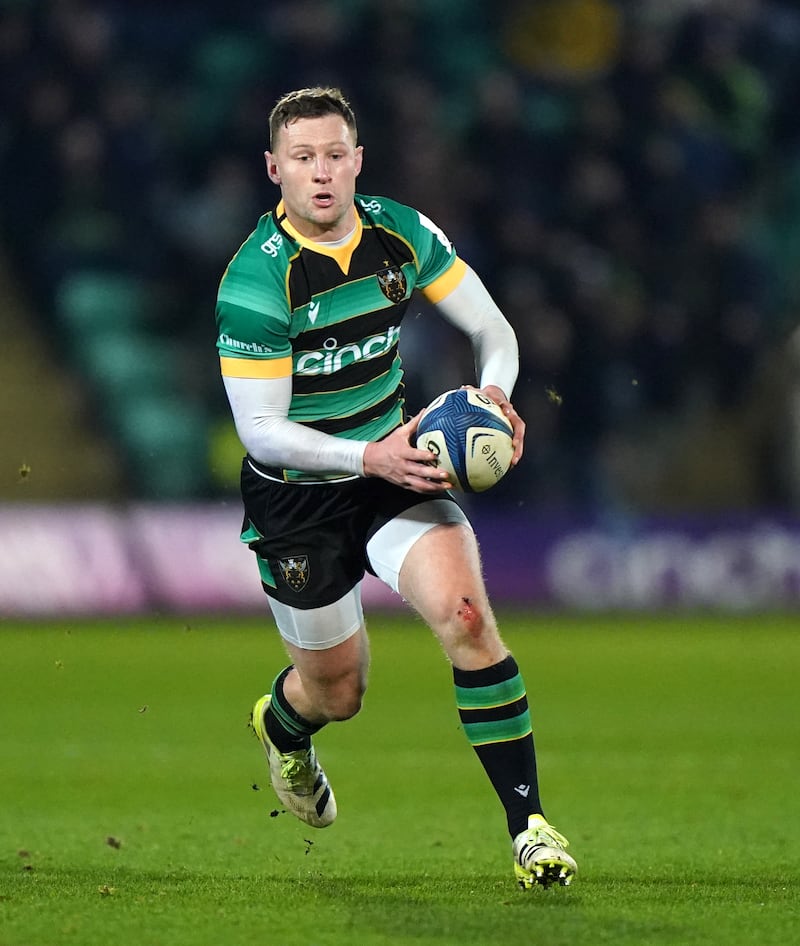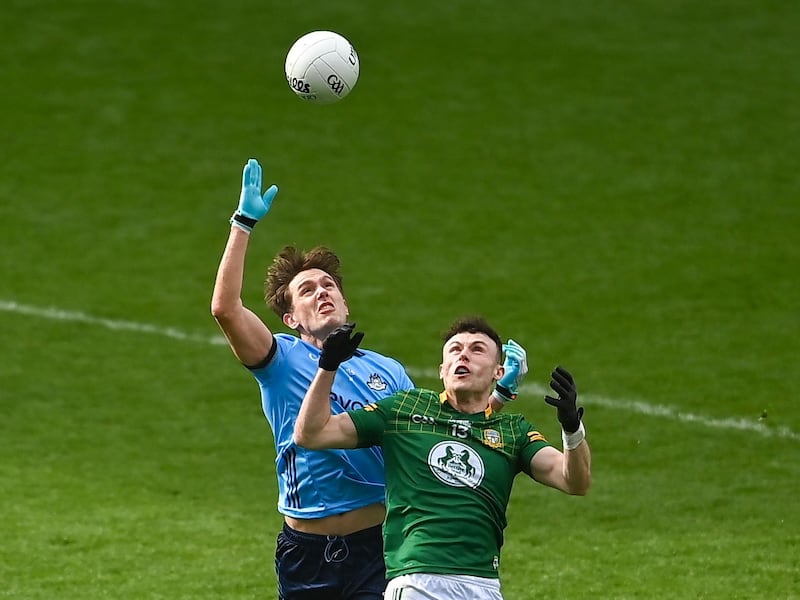“Cherche deux places”.
“Looking for two seats”, so reads the sign outside the Stade Marcel Déflandre.
It is written in black marker on an empty toilet roll tube. It’s hardly the envy of Art Attack, but it’s held aloft and the locals get the message.
There are others too, with sheets of paper and the same message. It’s altogether wishful thinking.
Pandemonium would be a stretch, but as Oyonnax - the Top 14′s relegation fodder - roll into town, the streets are throbbing with yellow.

It soon transpires that tickets sold out the day they were released. Three minutes is all it took.
Stade Rochelais, back-to-back European champions, and you can smell it in the salty air on France’s west coast.
Here rugby lives. Here rugby thrives.
—------------------------------------------------
A few weekends ago, two of rugby’s great minds clashed at the Aviva Stadium. A Corkman and a Wicklow man, a sold-out Lansdowne Road.
Leinster versus La Rochelle was everything great about rugby in this country on the surface, but there were flaws there too. Unmasked and unapologetic.

The build-up kicked off with Ronan O’Gara and his La Rochelle squad in Cork. His actions are scrutinised even in hibernation. His words are twisted even in silence. The media’s desperation to pull something from nothing, founded on an altogether strange obsession.
Irish self-sabotage ensues. The essence of metaphorical implosion.
The Leinster boos that rained in for an Irish legend were in their own eyes defiance, but it was little other than point-scoring in the Leinster v Munster sideshow. You betray us, we betray you kinda stuff, where no one wins and everyone winds up looking like a gobshite.
But for a fatigue-inducing trip to South Africa and back, O’Gara would have been loving it. A week-long turnaround in knockout rugby, docked a few further brownie points from the EPCR to leave them in the negative.

Louis Penverne briefly threatened to break the hosts’ reserve. In the end, it was his own side that was not broken, but shattered. Leinster were mesmerising.
Much of the country were on O’Gara’s side before kick off and remained that way after a failed bid for three-in-a-row. As much as it didn’t seem right, it didn’t feel totally wrong either.
It’s a statement you could apply to so much about rugby in Ireland today. Ireland’s Call comes to mind. Plenty don’t mind it. Even the advocates aren’t shouting from the rooftops professing their love for it.
Outside our cities, it can be equally challenging to buy into whole-heartedly supporting our provincial sides.

Leinster, a European semi-final, Croke Park. On paper, an almighty sporting occasion.
A sellout in a day, you can’t argue the appetite is there and ravenous. €18 tickets for The Hill were a welcome addition.
Particularly given the fact that tickets started around the €40 mark for the quarter-final. A decent view was up at €90.
Pints at €7.70 a pop were flowing, unless you were feeling deranged or quirky enough to sample of Guinness in a plastic cup. €6.90 for your sins.
That same Saturday, as the train pulled into Dundalk’s Clarke Station, it was pocketed with Leinster blue and you got a sense that perhaps the rugby landscape is markedly changing, that there is more than a desperate marketing ploy to Leinster’s “12 county army” slogan.
The closer kick-off came, the less that statement remained true.
The GAA’s running theme this season has been attendances and ticket prices. The other week, it was Leo Cullen’s turn to plead against a “rip-off” for the Investec Champions Cup semi-final.
In reality, it isn’t his own supporters who will suffer, but the travelling Northampton support who face the dilemma of forking out a small fortune for a night in the capital, or opting for a tiresome one-day return.
As heavy underdogs, neither would whet the appetite. A semi-final is a semi-final nonetheless. Stranger things have happened.

You get the impression those in the vicinity of Clarke Station will make their way once more. There’s an interesting onus on those around Ballsbridge who don’t have things just as easy.
Both are every bit as crucial to the success of all this. Present and future.
Because back in 2007, Ireland-England at the headquarters of the GAA was of huge significance to the country as a whole.
The historical aspect, with the opposition being who they were and where they were, it all created a truly special sense of occasion. You get the impression John Hayes wasn’t a man to cry all too often. It all appealed to the GAA folk.
You can feel something, even if you’re not exactly sure what it is, but you know other people can feel it too. Michael Hogan, Teddy McCarthy, Cormac McAnallen, there’s a piece of all of them there.

One organisation, one flag, Amhrán na bhFiann and a badge you’re bound to just like the hair is bound to your head, if you’re still lucky enough.
Croke Park has that magic about it. It doesn’t deserve to be tainted by an atmosphere of mediocrity.
For many reasons, rugby on this island as a whole can never have that unity, through no fault of its own. Not right now at least. Leinster will bring an atmosphere that will be far from mediocre, but it will be different.
In La Rochelle they have that sense of community. It proves the issue isn’t rugby, it’s us and our complex identity that distinguishes us from fellow Irishmen.
O’Gara himself often mentions the word ‘family’. It’s a relatively small city, and every second car in town has a Stade Rochelais sticker proudly smoothed out across the back window.
There were no empty toilet roll holders outside Lansdowne Road the other week. There likely won’t be outside Croke Park either, even if tickets proved to be gold dust.

Picture by Sportsfile
Life largely goes on the length and breadth of Leinster, from Dundalk to Enniscorthy. It can’t come to a standstill, as it would when Leitrim run out on the hallowed turf by Jones’ Road, or like it would on match day in La Rochelle.
If TJ Reid ran out before a packed out Aviva, it wouldn’t feel quite right either. History holds so much weight.
Not everyone sings from the same hymn sheet. It’s a geographical thing as much as anything. Dublin’s status as a primate city means it often dominates Ireland, never mind Leinster.
But Leinster is a big place. Provincial identity really only exists in Ulster, and even that only exists due to old political ideology.
The death of those same ideologies and the growth of rugby almost follow direct, inverse trajectories in a changing Ireland.

Little La Rochelle probably resonates with O’Gara, coming from a small city and a province of six counties, with matches split between Cork and Limerick.
Former teammates such as Alan Quinlan from Tipp and the late, great ‘Axel’ Foley of Clare.
Tadhg Furlong has put Wexford on the rugby map just as Seán O’Brien did with Carlow, but the fact that those facts are notable at all is probably because we live in a GAA country.
(Mind you, Dublin v Meath wasn’t designed for Croke Park either).
South Dublin’s production line is a victim of its own success. Success breeds jealousy. Jealousy breeds contempt. That was evident against La Rochelle.
Maybe some seismic political shift or a Rugby World Cup trophy can change it. Maybe it can’t.
Either way we’re left with this Croke Park-Leinster Rugby culture clash that has clambered for a peace agreement in light of sporting success.

North Dublin v South Dublin. Leinster v Munster. GAA v rugby. It all comes to a head as the stage gets grander in every sense.
We’re a complicated folk, so much so that the majority of the Ireland team playing against an English team on an Irish ground is a debate in the first place.
Maybe those clashes aren’t as stark as they seem. Time is the judge and time is the jury...
Leinster fans are free to be Leinster fans. Munster fans are free to dislike them and vice versa. None of us are obliged to support Leinster. Hate them if you want.
That’s rivalry, at least there’s some clarity in that.







